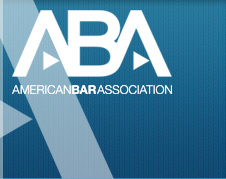Free Speech
 When a Google engineer was fired this month after his 10-page document chastising the company's diversity efforts became public, it raised questions about whether free speech is protected in the
When a Google engineer was fired this month after his 10-page document chastising the company's diversity efforts became public, it raised questions about whether free speech is protected in theworkplace. There is no blanket protection, and the extent of protection depends on many factors.
The free speech rights of employees depend on whether they work for a public or private employer, the state in which they work, applicable federal and state statutes and whether they are protected by a union.
The fired Google engineer says he is considering legal action against his former boss, but many observers say he would face a tough fight if he files suit. Generally, the rules for workplace speech are guided by a fragmented body of law, including state law and the various laws under the purview of the National Labor Relations Board and the Equal Employment Opportunity Commission.
Federal labor laws protect an employee’s right to engage in “protected concerted activities” — interpreted to include an employee who speaks to another seeking to enlist support on a matter of shared employee concern, such as working conditions. Communication, including speech, can be face-to-face or electronic, including social media. Also, many federal and state statutes contain anti-retaliation provisions protecting speech related to alleged violations of those laws. But free-speech protections do not necessarily extend to venting and other actions that could be viewed as insubordination or that create a hostile work environment among colleagues.
One of the earliest precedents in guiding the speech rights of workers dates to the early 1890s, when Oliver Wendell Holmes Jr., then a member of the Massachusetts Supreme Court, considered a mandamus petition from a Fall River, Mass., police officer who had been dismissed for talking politics. The officer brought the petition against the mayor and aldermen to get reinstated. Holmes threw out the case, noting, “The petitioner may have a constitutional right to talk politics, but he has no constitutional right to be a policeman.”
In the ensuring years, U.S. courts have generally followed Holmes’ reasoning, supporting the underlying concept of employment-at-will, which gives employers wide latitude to fire employees for any reason except on the grounds of race, religion or gender, or for conduct protected elsewhere. In 1983, for example, the U.S. Supreme Court upheld the right of Harry Connick Sr., district attorney for the parish that includes New Orleans and father of musician Harry Connick Jr., to fire an assistant district attorney for “insubordination” when she objected to a transfer and distributed a survey to her coworkers related to internal office matters. The high court ruled in Connick v. Myers that because the employee’s actions did not involve matters of public concern, Connick was justified in firing her for actions he believed would “disrupt the office, undermine his authority and destroy close working relationships.”
Four years later, the high court provided public employees more free-speech protection for matters related to “public concern.” In Rankin v. McPherson, a 19-year-old clerical worker in the Harris County, Texas, constable’s office responded to news of the 1981 assassination attempt against President Ronald Reagan by telling a colleague, “if they go for him again, I hope they get him.” Another co-worker overheard the comment and reported it to the constable. The worker who made the remark was fired.
By a 5-4 vote in 1987, the U.S. Supreme Court determined that the clerical worker was improperly discharged, in part because the majority found that her speech related to a public concern. It also found that the comment had a limited audience, was “unrelated to the functioning of the office” and “the danger to the agency’s successful functioning from that employee’s private speech is minimal.”
Across the country, states have adopted added protections for unjust terminations, such as exceptions to employment-at-will for speech or other actions under categories of public policy, implied contracts and covenants of good faith. Still, more than half of the states have some provision for employment-at-will. To best gauge whether specific speech in the workplace is protected requires consideration of individual state law and the cases that have been resolved by a state or federal agency or the highest court of jurisdiction.
Posted 8/17/2017
Other Fact-Checked Subjects:
- Hate Speech
- Flag Burning
- Pardons
- Affirmative Action
- Free Speech
- Ninth Circuit
- Forced Evacuation
- Executive Orders
- National Anthem Controversy
- Gun Laws
- Broadcast Licenses
- Revoking Visas
- Non-Citizen Terrorist Cases
- Religious Displays
- Congressional Seating
- Sexual Harassment
- Revoking Citizenship
- Influencing U.S. Elections
- Legal View of Treason
- Chain Migration
- Guns and Courts
- Students' Right to Protest
- Attorney-Client Privilege
- Recusal
- The President and the Law
- Immigrant Rights
- Revoking Security Clearances
- Confidentiality Agreements
- Resigned or Fired
- Deadly Force
- Birthright Citizenship
- Press Credentials
- Troops at the Border
- Election Re-Vote
- Emergency Powers
- Immigration Law
- Contempt of Congress
- Boycotting 2020 Census
- Electoral College
- Impeachment
- Separation of Powers
- Equal Rights Amendment
- Whistleblower Protection
- Pandemic Authority
- State Powers
- Employer Limits
- Police Immunity
- Federal Forces
- Hatch Act
- Attorney General Authority
- Frivolous Lawsuits
- Social Media and the First Amendment
- D.C. Statehood
- Executive Privilege
- Russian Sanctions
- Law of Genocide
- Stare Decisis
- Declassified




